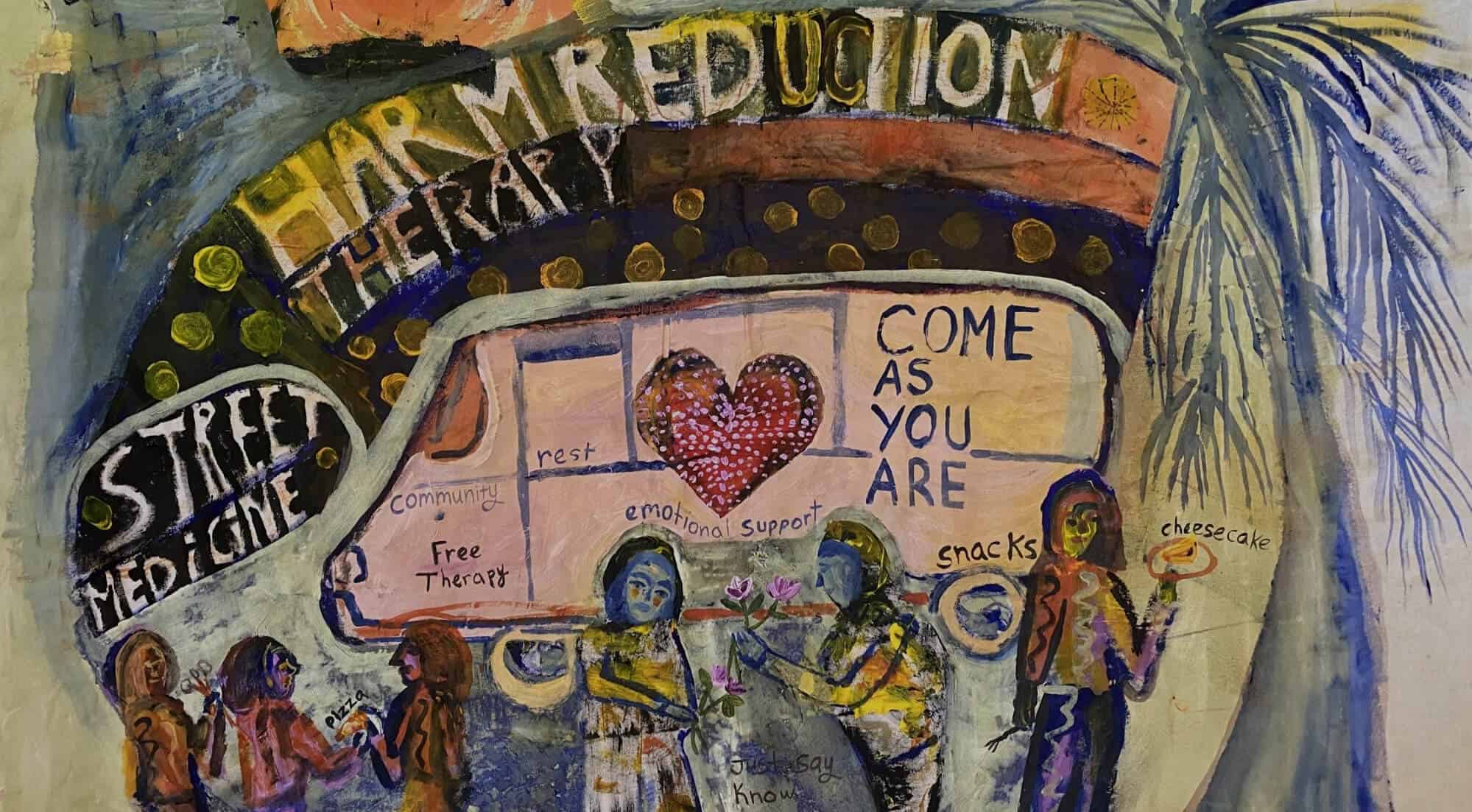With COVID-19, our very successful mobile program has needed to pivot; we are figuring out how to eliminate gatherings while still providing uninterrupted care as new problems are emerging.
Access to water and food is sharply diminished for people who camp far from parks (with running water), as libraries and cafes close and panhandling and recycling resources disappear. Rationing of bottled water means we can’t buy enough to distribute, and subsidized food programs are beyond capacity.
As workers in homeless medical and service agencies self-quarantine or become ill, there is an added need for help with COVID-19 screening and syringe distribution.
Traditional encampments are dangerous. People on the streets, most already in vulnerable groups, live in cramped quarters without sanitation, putting them at high risk of infection. As they become ill and move into isolation and containment rooms, many will experience substance, mental health, and emotional crisis without their usual support systems.
Please support the work we are doing to respond to COVID-19
HRTC’s mobile program is uniquely positioned, already having deep relationships within the unhoused community and a mobile infrastructure, to respond quickly to changing parameters. We’ve adapted our program by:
- Developing a phone support line, staffed by our therapists 50 hours per week, for people on the streets, people in isolation and containment rooms, and other providers. We have distributed our number throughout our service areas and to all SF homeless service providers. If the need grows beyond our capacity, we will recruit other therapists experienced in harm reduction and crisis management. Here is our brochure with our schedule.
- Switching from pop-up therapy centers to comprehensive outreach, expanding to reach more people and encampments without creating congregate spaces.
- Distributing reusable water bottles labeled with our phone support line, COVID-19 information, and medical resources; working with a company to supply bottled water and to develop water stations in impacted areas.
- Shifting our pop-up hot meal service to sack lunches with a warm burrito, water, candy, and fruit. From 500 meals/week, we are distributing 600 and want to scale this up (we have been asked to help get food to COVID+ people in isolation and containment rooms.)
- Per request by SFDPH, adding COVID-19 screening to our usual check-in, taking temperatures and triaging people displaying symptoms.
- Distributing more Narcan and moving toward giving out syringes so needle exchange sites can disperse.
- Distributing 2 person tents for the Coalition on Homelessness so that folx can spread out; working with other SFDPH outreach teams to develop safe supported encampments on underutilized land.

